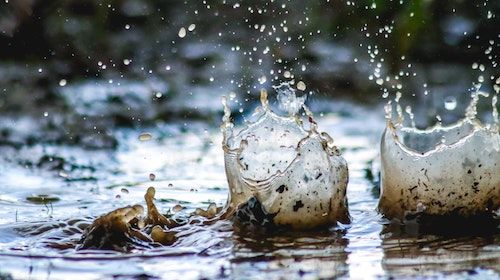
01 October 2021
The All-Party Parliamentary Climate Change Group has published a series of essays detailing the many areas where work is still needed on climate policy in the UK. In a short policy essay entitled ‘From Oil to Soil: Regenerative Agriculture as a Climate Solution’, Barry Sheerman MP and Dr Anna Krzywoszynska highlight the role regenerative agriculture and soil can play in climate change mitigation and adaptation, and the policy opportunities present to ensure this.
On Thursday, the Environment Audit Committee published their report on ‘The UK’s Footprint on Global Biodiversity’, following their previous report ‘Biodiversity in the UK: bloom or bust?’ published this summer. This second report highlights that if everyone on Earth lived like the average Briton, we would need three planets to meet humanity’s demands, and that the UK’s consumption patterns affect biodiversity globally. The report also comments on the fact that there is a lack of data on soil properties in UK Overseas Territories to assess the state of biodiversity there.
The Northern Ireland Environment Link outlines its vision for sustainable land management in its report ‘Farming for the Future’. The report calls for a post-Brexit vision where land is used and managed in a way that is good for people, nature and the climate. This will require public investment and political leadership, including paying for the delivery of ‘public goods’, which in terms of agriculture are: biodiversity, water, air and soil quality, and the mitigation and adaptation to climate change.
The EU Mission ‘A Soil Deal for Europe’ has released a fact sheet on its goal to create 100 living labs and lighthouses to co-create knowledge and test solutions to lead the transition towards healthy soils. EU Missions are part of the Horizon Europe research and innovation programme for the years 2021-2027. The programme will provide €320 million in funding during 2021-23 to help deliver on the soil mission.
In Bangladesh, smallholder farmers are employing innovative methods as sea levels are rising, including growing crops that can thrive in saline soils. Saline testing kits that give results in minutes are being distributed by an international emergency relief and development organisation in order to help farmers decide which seeds to plant for maximum yield.
Scientists in the Philippines have isolated 30 bacteria species found at the Mayon volcano, one of which seems to have relevant antibiotic and antitumor properties. The preliminary results are encouraging and may bring new hope for cancer treatment. The study also shows the importance of soil ecosystem analysis.